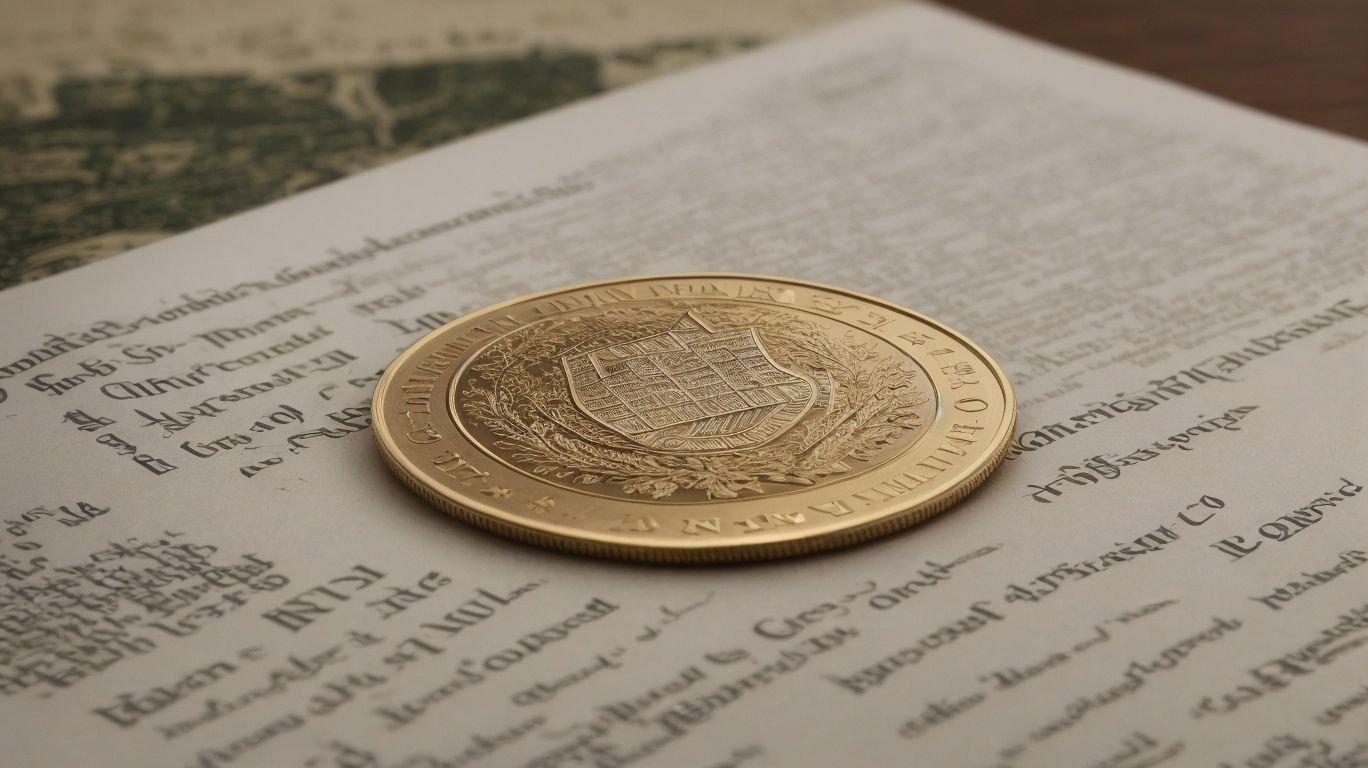The “Constitution State Coin” is a proposed program in Connecticut that would offer a temporary solution to address the state’s ongoing debate on minimum wage. Under this program, the state would issue a virtual currency, equal to the difference between the current minimum wage and the proposed minimum wage for 2024. This currency would be called the “Constitution State Coin” and could be used by employers to supplement their employees’ income and meet the new minimum wage requirement.
Currently, the minimum wage in Connecticut is $12 per hour, and it is set to increase to $15 per hour by 2023. However, a proposal to raise the minimum wage to $20 per hour by 2024 is currently being debated in the state legislature. This is where the Constitution State Coin program comes into play.
The purpose of this program is to provide a temporary solution to the ongoing debate on minimum wage in Connecticut. The Constitution State Coin would act as a bridge between the current minimum wage and the proposed $20 per hour wage, ensuring that workers are not left behind in the process of increasing the minimum wage.
There are arguments for and against the implementation of the Constitution State Coin. Supporters argue that it would provide a safety net for workers and help address income inequality in the state. However, opponents argue that it would create an additional burden for small businesses and could lead to job loss.
The possible effects of the Constitution State Coin on Connecticut’s economy are still uncertain. It could potentially help boost consumer spending, as workers would have more disposable income. However, it could also put financial strain on small businesses, which may struggle to meet the minimum wage requirement.
Other states have also taken steps to address minimum wage, with some already implementing a $15 per hour minimum wage. Some states have also launched similar programs to the Constitution State Coin, such as the “Wage Recovery Program” in Illinois and the “Fair Wage Fund” in California.
Individuals and businesses can prepare for the implementation of the Constitution State Coin by staying informed on the latest developments and understanding how it may impact their finances. Employers should also be proactive in adjusting their budget to meet the new minimum wage requirement. Additionally, individuals should be aware of their rights and resources if they feel their employer is not complying with the minimum wage law.
Key Takeaways:
What Is the Constitution State Coin?

Photo Credits: Humanresources-Hr.Com by Peter Robinson
In Connecticut, the Constitution State Coin is a unique commemorative coin created to pay tribute to the state’s rich history and heritage. These coins typically showcase prominent state symbols and landmarks, such as the Charter Oak or the state flag. They are highly sought-after by collectors and can be acquired from authorized distributors or acquired through special events and promotions.
What Is the Minimum Wage in Connecticut?

Photo Credits: Humanresources-Hr.Com by Justin Clark
In Connecticut, the minimum wage is $13.00 per hour, effective as of August 1, 2021. It is important to stay informed about legislative changes as the minimum wage may be subject to revisions.
How Has the Minimum Wage in Connecticut Changed Over Time?
The minimum wage in Connecticut has evolved over time, in response to economic and legislative changes. Here is a timeline of key events:
- 1939: Connecticut becomes the first state in the U.S. to establish a minimum wage law at $0.40 per hour.
- 2014: The minimum wage increases to $8.70 per hour, with subsequent annual increases.
- 2019: Legislation is signed to gradually raise the minimum wage to $15.00 per hour by 2023.
What Is the Purpose of the Constitution State Coin?

Photo Credits: Humanresources-Hr.Com by Christopher Mitchell
The purpose of the Constitution State Coin is to serve as a commemoration of Connecticut’s rich history, culture, and contributions to the development of the nation. It acts as a symbol of pride for the state’s residents and a tool for educating people about the significance of Connecticut. Furthermore, the coin strives to promote a sense of unity and belonging among the people of Connecticut, strengthening bonds within the community.
How Will the Constitution State Coin Affect Minimum Wage in Connecticut?
- Examine the current minimum wage in Connecticut and compare it with the proposed value of the Constitution State Coin.
- Analyze the potential direct impact of implementing the Constitution State Coin on the existing minimum wage structure.
- Consider the potential ripple effects on businesses, workers, and consumers as a result of the change in minimum wage.
- Evaluate the historical data of similar programs in other states and their effects on minimum wage.
- Prepare for the implementation by making necessary adjustments to staffing plans, business models, and overhead costs.
Connecticut has a history of addressing labor issues through innovative programs, and the Constitution State Coin is set to continue this tradition by transforming the minimum wage landscape.
What Are the Arguments For and Against the Constitution State Coin?
The arguments for and against the Constitution State Coin revolve around boosting workers’ purchasing power and reducing income inequality. Those in favor argue that it has the potential to increase financial stability for low-wage earners and stimulate local economies. However, those against raise concerns about potential job losses, increased operational costs for businesses, and the possibility of inflation.
To prepare for its implementation, businesses should evaluate their financial readiness, explore strategies for cutting costs, and consider making adjustments to their workforce.
What Are the Possible Effects of the Constitution State Coin on Connecticut’s Economy?

Photo Credits: Humanresources-Hr.Com by Randy King
The implementation of the Constitution State Coin, Connecticut’s new minimum wage initiative, has the potential to impact the state’s economy in various ways:
- Business costs may increase, resulting in higher prices for consumers.
- Small businesses may struggle to maintain their current staffing levels.
- Workers may experience improved financial stability, potentially leading to an increase in local consumer spending.
- The overall economic growth of the state could be influenced by changes in disposable income and business profitability.
It is crucial to closely monitor these effects and adjust policies accordingly to ensure a balanced economic landscape in Connecticut.
Will the Constitution State Coin Help or Hurt Small Businesses?
The introduction of the Constitution State Coin in Connecticut has sparked discussions about its potential impact on small businesses. Supporters believe that it will bring in additional funds to the local economy, ultimately benefiting small enterprises. However, opponents express concerns about potential increases in operational costs for small businesses.
Connecticut’s minimum wage has been steadily rising in recent years, with the goal of improving the quality of life for workers but also presenting challenges for small businesses.
How Will the Constitution State Coin Impact Workers and Consumers?
- Workers: The Constitution State Coin may raise the minimum wage, potentially improving the earning potential of workers.
- Consumers: The increased minimum wage could result in higher costs for products and services, potentially affecting consumers.
The introduction of the Constitution State Coin in Connecticut sparked debates on its potential impact on both workers and consumers, bringing attention to the potential concerns and benefits for both parties.
What Are Other States Doing to Address Minimum Wage?

Photo Credits: Humanresources-Hr.Com by David Nguyen
States across the US are taking steps to address concerns surrounding the minimum wage in different ways. Some are implementing gradual annual increases, while others have adopted a tiered system based on location or business size. Furthermore, a number of states have tied their minimum wage to inflation, guaranteeing that it will automatically adjust to the cost of living.
Fact: As of 2023, 29 states and the District of Columbia have set minimum wages higher than the federal minimum wage of $7.25 per hour.
Are There Any Similar Programs to the Constitution State Coin in Other States?
Several states have adopted programs similar to the Constitution State Coin, such as California’s Golden State Grant, which provides additional financial aid to low-income individuals. New York State has also implemented the Empire Wage Assistance Program, which offers subsidies to small businesses for maintaining employee wages. These initiatives share the common goal of supporting workers and businesses, although they may use different strategies.
In Oregon, a grassroots movement led to the implementation of the Cascade Compensation Coin, with the aim of supplementing the income of minimum wage workers. This program received support from local businesses and resulted in improved financial stability for low-wage workers.
What Are the Pros and Cons of These Programs?
Programs addressing minimum wage, such as the Constitution State Coin, have both advantages and challenges. On one hand, they can boost workers’ income and purchasing power. However, they may also lead to increased operational costs for businesses and inflationary pressure on the economy.
To make informed decisions, it is recommended to explore case studies of similar programs in other states and analyze the impact on businesses and workers.
How Can Individuals and Businesses Prepare for the Implementation of the Constitution State Coin?

Photo Credits: Humanresources-Hr.Com by Eric Allen
- Gain an understanding of the new minimum wage laws and how they will apply to your business or employment.
- Assess your budget and make any necessary adjustments to accommodate the upcoming increase in labor costs.
- Educate your employees about the changes and how it will impact their pay and overall financial situation.
Pro-tip: Consider providing additional training or benefits to your employees to increase their value within the organization and justify the upcoming increase in labor costs.
What Are Must-Know Details About the Constitution State Coin?
What Are the Essential Details to Know About the Constitution State Coin? Must-know information includes its implementation timeline, the exact minimum wage it will establish, and the eligibility criteria. It is also crucial to comprehend the impact on small businesses, workers, and consumers. Furthermore, individuals and businesses must prepare for the necessary adjustments in staffing plans, business models, overhead costs, and payroll. The implementation of the Constitution State Coin requires careful attention to legal and administrative requirements.
How Can Businesses Adjust Their Staffing Plan and Business Model?
- Assess Current Staffing: Evaluate the skills, workload, and job roles of current staff.
- Restructure Job Roles: Redefine positions to align with both new wage laws and the changing needs of the business.
- Implement Technology: Introduce automation and software to streamline operations and reduce labor costs.
- Review Business Model: Adjust pricing, product offerings, and target market to accommodate the increased labor expenses.
- Training and Development: Invest in employee training to enhance skills and increase productivity.
What Are the Best Hiring Practices to Ensure the Right Fit?
To ensure the right fit, employers can utilize structured interviews, skills assessments, and behavioral questions. It is also important to involve team members in the hiring process and evaluate cultural fit. These practices are essential in determining a candidate’s skills, experience, and alignment with the company’s values and goals.
Fact: According to a survey by SHRM, 67% of organizations use behavioral questions to assess candidates’ soft skills.
How Can Small Businesses Manage Overhead Costs and Payroll?
- Track Expenses: Monitor all overhead costs, including rent, utilities, and supplies.
- Budget Wisely: Allocate resources efficiently, prioritizing essential expenses and identifying areas for potential cost-cutting.
- Review Payroll: Evaluate staffing needs and labor costs to ensure optimal utilization of resources.
- Explore Automation: Implement technology solutions to streamline payroll processes and minimize manual labor.
- Seek Professional Advice: Consult with financial experts or accountants to gain insights on managing payroll and reducing overhead expenses.
What Are the Tedious Tasks Involved in Implementing the Constitution State Coin?
Implementing the Constitution State Coin involves tedious tasks, such as:
- Revising employment contracts and policies to comply with the new wage regulations.
- Updating payroll systems and software to reflect the revised minimum wage.
- Educating employees about the changes and ensuring seamless adaptation.
- Reviewing financial records and budgeting for increased labor costs.
To prepare for these tasks, businesses should conduct thorough wage audits, communicate openly with employees, and seek professional advice on compliance.
Frequently Asked Questions
What is the current minimum wage in Connecticut?
The current minimum wage in Connecticut is $15.69 per hour and is set to increase every January after 2024 based on economic indicators.
When did this minimum wage increase go into effect?
The minimum wage increase was signed into law by Governor Ned Lamont and went into effect on June 1, 2023.
How does Connecticut’s minimum wage compare to neighboring states?
Connecticut’s minimum wage lagged behind neighboring states, such as Rhode Island and Massachusetts, but with this new law, it will be on par with them.
Who is eligible for the minimum wage increase in Connecticut?
All workers in Connecticut, including tipped employees, contract employees, and minors over the age of 18, will receive the minimum wage increase.
How will the new minimum wage be calculated after 2024?
After 2024, the minimum wage in Connecticut will be indexed to the rate of inflation, meaning it will automatically adjust to keep up with the cost of living.
As a small business owner in Connecticut, what do I need to know about the minimum wage increase?
Small business owners in Connecticut must know details about the minimum wage increase, such as the new rate of $15 per hour and the annual increases every January after 2024 based on economic indicators. They should also be aware of potential changes to local wage laws and plan ahead for busy seasons by reevaluating their small business payroll software to account for the new law.





